
Volume XVI, Issue XVIII
Imaginative Apologetics After Jesus
The Parable of the Mustard Seed
And he said, Whereunto shall we liken the kingdom of God? or with what comparison shall we compare it? It is like a grain of mustard seed, which, when it is sown in the earth, is less than all the seeds that be in the earth: But when it is sown, it groweth up, and becometh greater than all herbs, and shooteth out great branches; so that the fowls of the air may lodge under the shadow of it. And with many such parables spake he the word unto them, as they were able to hear it. But without a parable spake he not unto them: and when they were alone, he expounded all things to his disciples.” – Mark 4:30-34
Last week we featured a talk by Alison Millbank on ‘Imaginitive Apologetics.’ She spoke of using imagination and wonder to lead us to the great truths of the Gospel. At the end of her talk, someone asked “How do we do it?” A fair question, since Western man tends to want to present information – lots of it – and out of that preponderance of evidence it is expected that one will make the ‘right’ decision, but that is not necessarily the outcome.
If a storyteller appears on the street corner, people gather round. Aren’t we all intrigued by a good story? We get woven into the spell of a good imaginative presentation. If someone were to stand on the same street corner and read off statistics – not so much. It is the story that captivates the imagination and leads us to consider Truth, not the other way around.
For years I looked at this parable and Jesus’ use of parables wrong. Somehow it seemed that Jesus was ‘holding out’ on the crowds. The great truths were reserved for the disciples – the ‘chosen.’ The crowds were somehow being excluded. But yesterday, as a group of us were looking at this passage again, it came to us that Jesus was not excluding the crowds at all. He was doing exactly what Alison Millbank was saying we should do. He was weaving a mystery for us to solve. A parable is an invitation to ponder. Jesus’ life was all about the Kingdom of Heaven and yet even his disciples were still continually stuck on the level of thinking that the ‘Kingdom’ was about restoring political Israel only.
The seed of the black mustard is tiny. It is not the mustard we plant in our gardens here and indeed this tiny seed produces a respectable tree! So it is with the Kingdom of God. You have to see the tiny seed as actually producing something much bigger. The Kingdom transcends anything we can imagine on our own, and yet imagination is how we shall perceive it! And yes, imagination will pique our curiosity, leading us to discipleship. It is in discipleship that we want to know more, we want to dig deeper. Perhaps that is why the saints of old referred to shamrocks and sunflowers. A picture really is worth a thousand words.
Our faith may be compared to this flower, since its gaze is ever fixed above, and turned towards the glorious sun of divine truth.” – Attributed to Catherine of Siena

Volume XVI, Issue XVIIIa
Josiah
By Bob Kirchman
Copyright © 2018, The Kirchman Studio, all rights reserved
Chapter 4: Mars Ain't the Kind of Place to Raise Your Kids
At Mission Control Commander West listened and watched intently. The whole conversation was being recorded and Josiah began: “Hello Earth! I suppose you are wondering what we are doing here?”
West asked Josiah to tell his story.
Let us start with that moment so long ago when our distress signal missile was fired at the starship Great Northern. I am sure you want to know what transpired here on Mars. As you know, APOLLONIUS had his ‘inner circle’ on this mission and they had smuggled aboard a number of Iranian nuclear devices. As near as we can tell, they planned to demonstrate what they had and hold Earth hostage. As you probably know, the missile was aborted and a ‘return command’ initiated, basically the quickest way to save the starship involved bringing the missile back where it came from in a ‘hard turn’ maneuver.”
So,” West asked, “Who aborted the missile?”
I did, sir,” said Josiah. He related the story of how he and his colleague had remained after their shift and noticed unusual activity. Upon investigation they saw the launch of the missile from the blockhouse and though at the time they thought it was a malfunction, they stepped in to stop it.
They expected it to fall to Mars without much trouble. When the world was rocked by an explosion and everything went dark, Josiah and Allison knew it was something worse. They had initially signed on to the voyage because they were political/ideological prisoners and had lost everything. They thought the Mars colony would offer them a new life. Soon, however, it was clear that APOLLONIUS was creating a dark kingdom. The colonists were required to forsake their names for numbers and APOLLONIUS expected unquestioned loyalty. Josiah and Allison simply played along and kept their suspicions to themselves.
How many survivors are there then?” West asked.
Initially there were thirty-seven.” Josiah said. “Four of those died from injuries and other causes in the time that followed.”
The colony was destroyed. How did you all make it?” Exclaimed West.
That’s the really strange part.” Returned Josiah, “You see, we normally would have been in the colony proper at the time but in an odd sort of way, many hands became needed in one of the more remote greenhouses. Even stranger, those greenhouses were in an area sheltered by this interesting rock ridge you see behind me. After the radiation subsided, Allison and I made our way over to the surviving greenhouses. It was just a hunch, but we thought those greenhouses might still be functioning if the blast had been stopped by the intervening ridge. We were not at all surprised to find the greenhouses intact, but we were happily surprised to find so many of our fellow settlers still alive!”
West interrupted, “So, I have to ask you, as a matter of necessity, what is your colony’s stance toward those of us on Earth?”
Personally, Allison and I have no animus toward AAR or Israel. I have to say that I cannot speak for the ones who were more loyal to APOLLONIUS. For decades we simply haven’t thought about it. We determined that you were above us scanning for survivors but could detect none. When we no longer saw the ship in the sky, we assumed you had given up and the Great Northern had returned to Earth. Our communications were totally destroyed so there was no way for us to tell you otherwise.
I assumed command of the colony because no one knew what to do. We managed to create a village in the remaining greenhouses where we live today. They are pretty much simple mud houses but they serve us well. We grow our own food and have been able to hold on for some time now.”
West asked, “So, there are thirty-three of you still on Mars?” He did the math. It would be impossible to evacuate thirty-three souls from Mars in the single lander. He awaited Josiah’s answer.
Oh no, there are now 122 of us.” Came back the answer from Josiah
(to be continued)
The Martian Chronicles
By Ray Bradbury
It is good to renew one’s WONDER” said the philosopher, “Space travel has made children of us all.” – Ray Bradbury
Ray Bradbury wrote The Martian Chronicles as a series of short stories, exploring such themes as “what would Martians think of ‘invading’ Earth men?” When he approached a publisher in New York he was told “We don’t buy short stories. Do you have a novel?” He went back to his hotel and looked over his short stories – outlining them into what would become The Martian Chronicles. The next day he pitched the outline to the publisher, making his first sale at $500! In this audio production Ray Bradbury reads from the novel and explains how he wrote it.
Henry of Ofterdingen: A Romance by Novalis
[click to read]
Probably some of the readers of this volume will feel an interest in the author's life. Although there are but few works, in which the mind of the author is more clearly and purely reflected than in this; yet it is natural that the reader should feel some interest in the outward circumstances of one, who has become dear to him; and those friends of Novalis, who have never known him personally, will be glad to hear all that we can bring to light concerning him. (read more)
Can Art Amend History?
Titus Kaphar
Mohomony Morning
Photos by Bob Kirchman

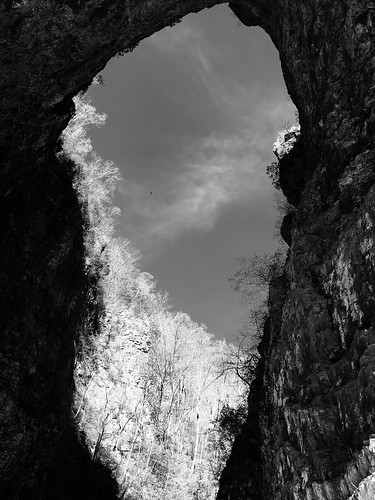


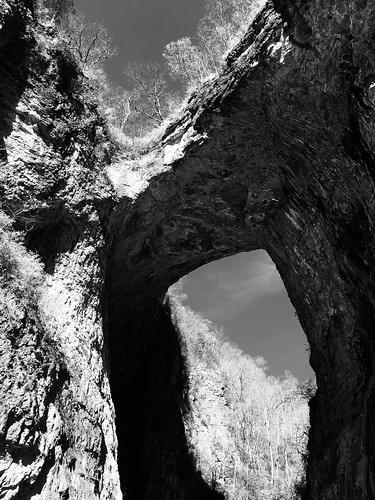
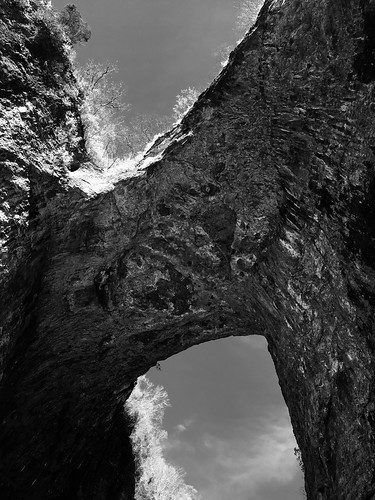
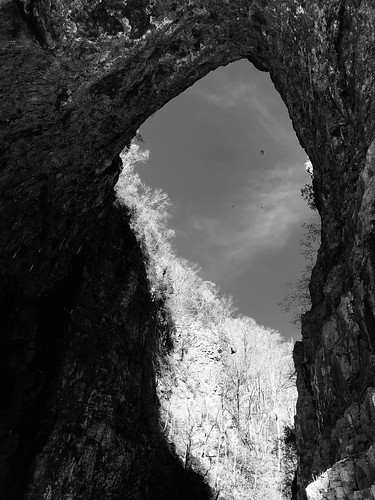
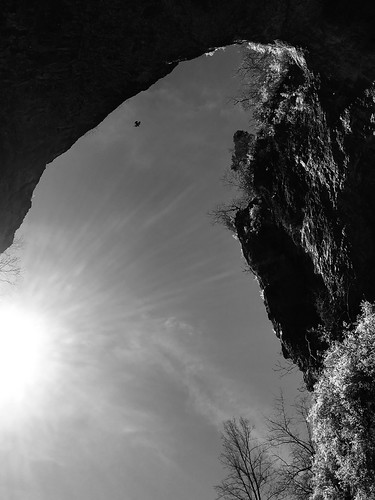
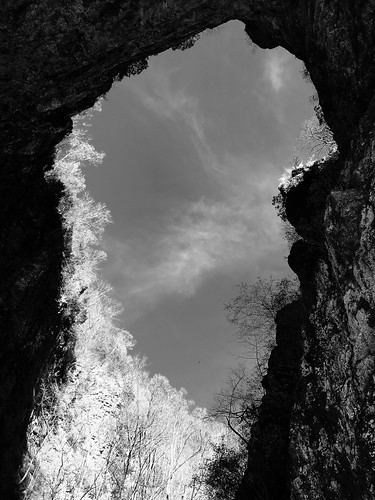
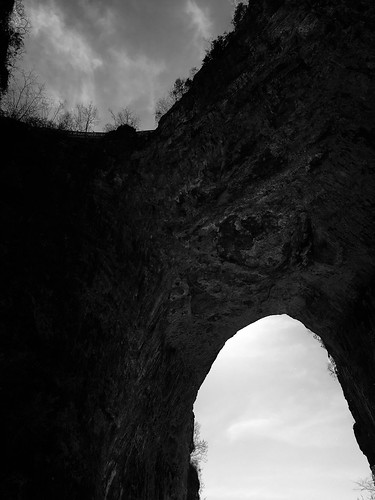

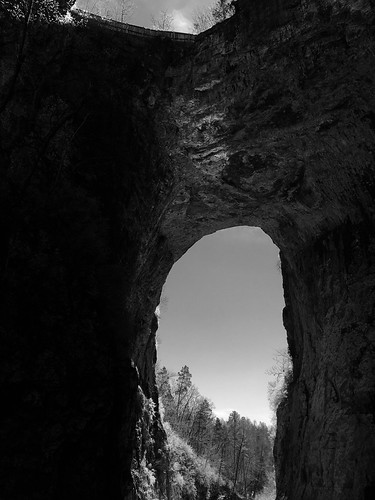
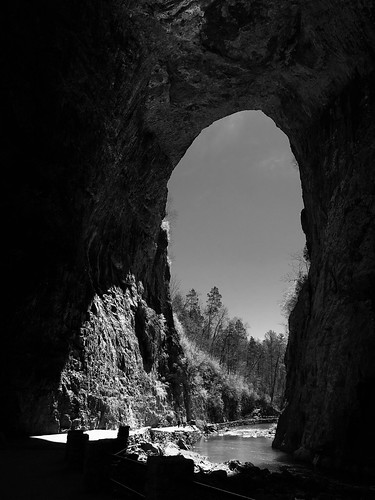


Morning light greets visitors to Virginia's Natural Bridge.
The Mohomony Paintings
Paintings by Bob Kirchman

Mohomony One.

Mohomony Two.

Mohomony Three.

Mohomony Four

Mohomony Five.
Mohomony Snow
Photos by Bob Kirchman

Mohomony Snow One.
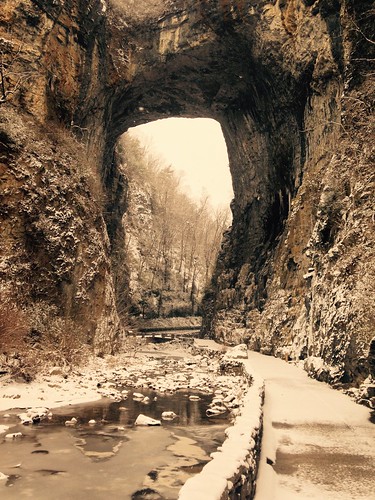
Mohomony Snow Two.

Mohomony Snow Three.
